'I found a way to keep going': Felicity Aston MBE on being the first woman to cross Antarctica solo
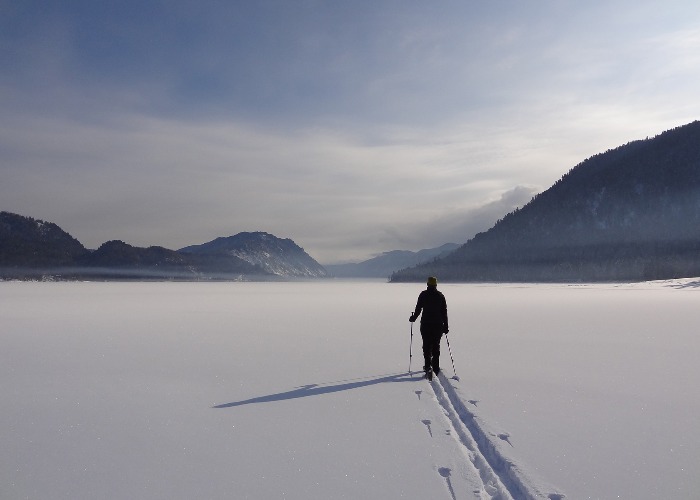
We caught up with the adventurer to talk about exploring both the poles, surviving freezing temperatures and coping with the isolation of travelling to the world's most remote places alone.
Felicity Aston MBE is a polar explorer, climate scientist and author. In 2012, she was the first woman to ski across Antarctica alone and the journey put her into the record books. Felicity has received numerous awards and accolades which include the Polar Medal from the Queen for services to polar exploration.
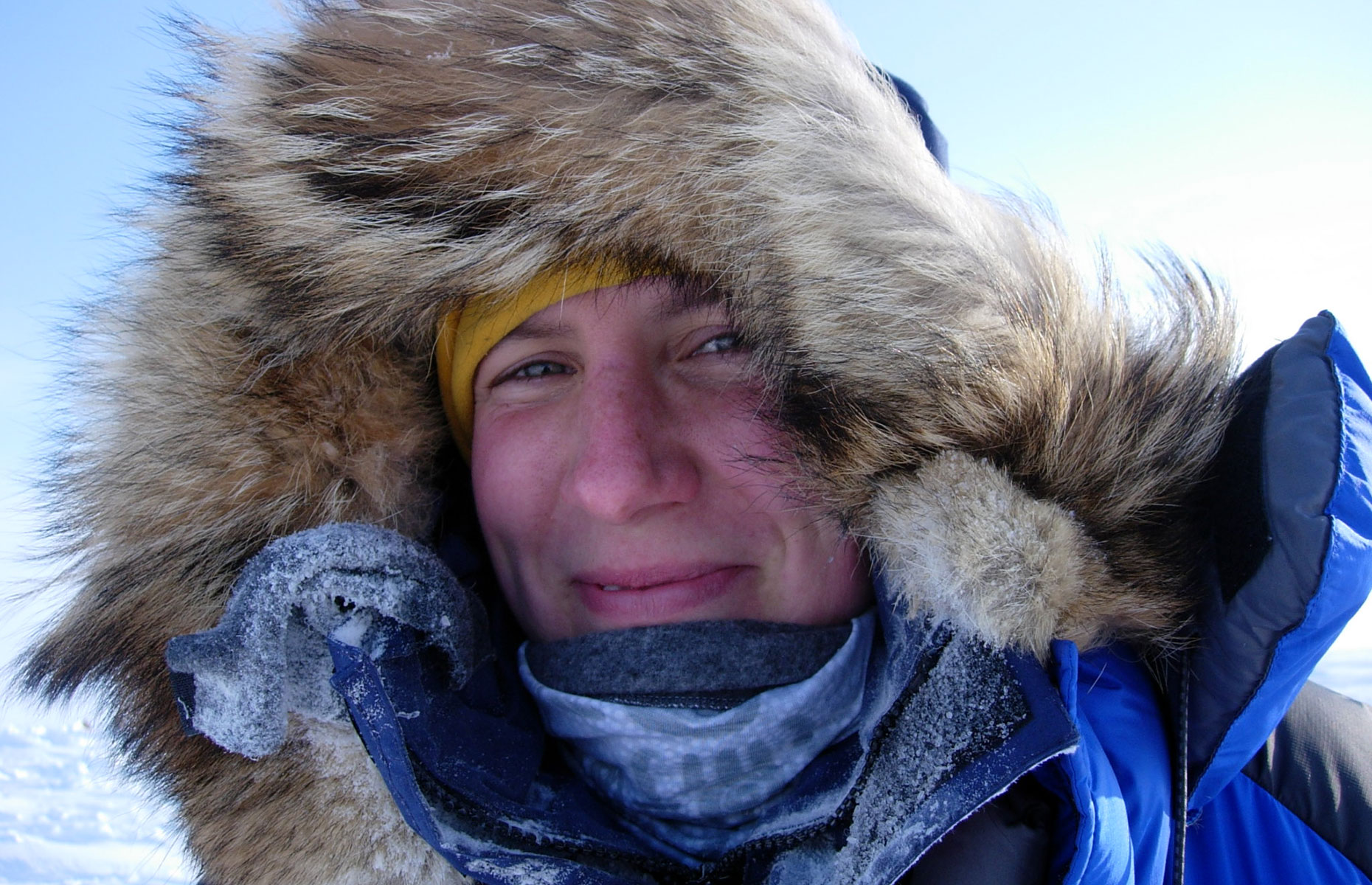 Felicity Aston/CC BY-SA 4.0/via Wikimedia Commons
Felicity Aston/CC BY-SA 4.0/via Wikimedia Commons
How did you become interested in Antarctica?
I studied astrophysics at the University of London and then meteorology at the University of Reading. My first job was as a senior meteorologist at Rothera Research Station at Adelaide Island on the Antarctic Peninsula monitoring climate and ozone.
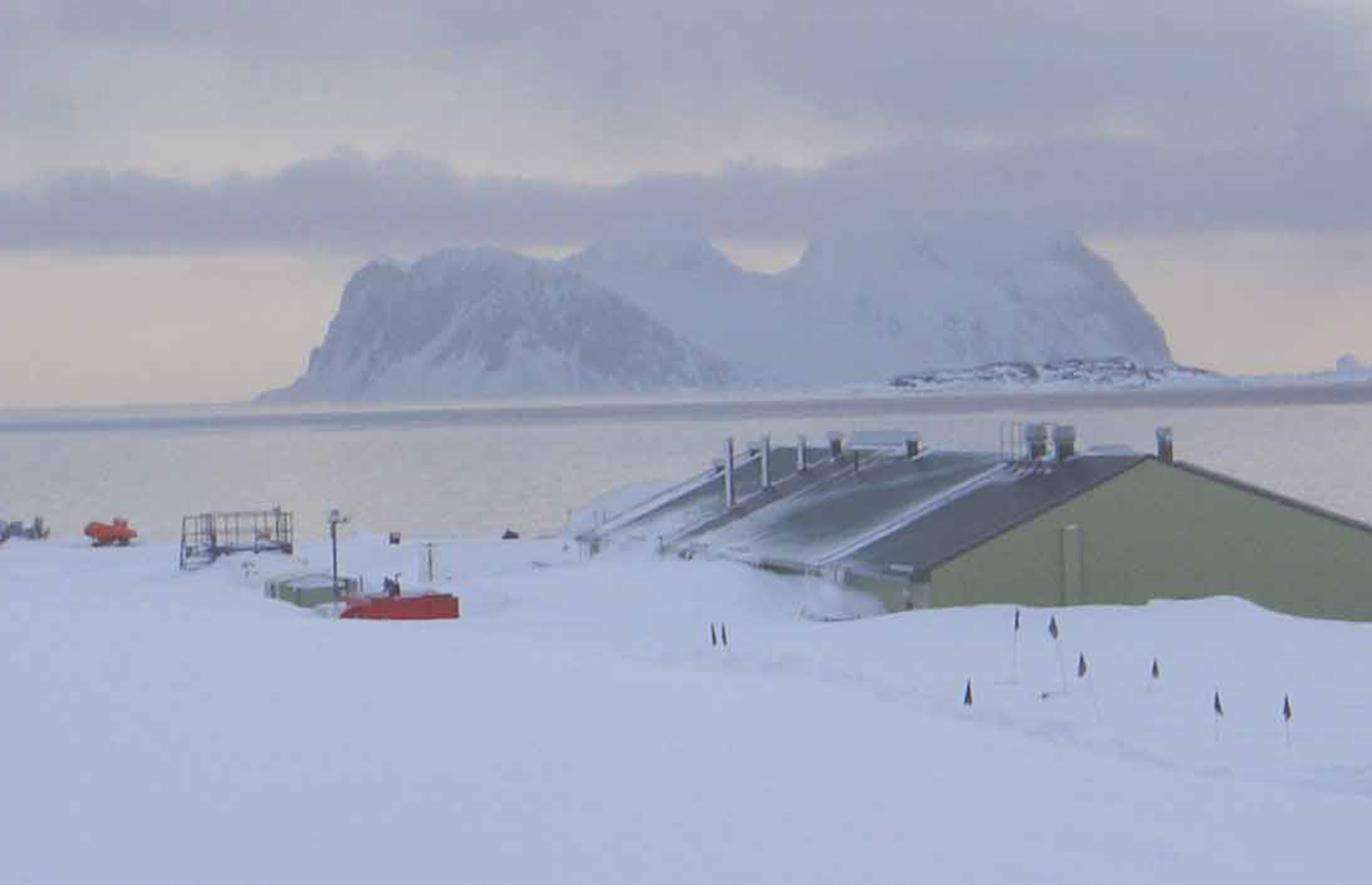 Rothera Research Station. Credit: CC BY-SA 3.0/via Wikimedia Commons
Rothera Research Station. Credit: CC BY-SA 3.0/via Wikimedia Commons
Antarctica is the ultimate place for science because it is completely unique, it offers us an opportunity to study environmental processes that can’t be seen anywhere else.
READ MORE: An interview with legendary travel writer Hilary Bradt
When did you learn to ski?
During the three years I worked in Antarctica, skiing was the most practical way to get around, so I learned on the job.
Can you tell us about some of your many adventures?
My first polar expedition was as part of a large youth expedition in southern Greenland. I remember reaching the ice after weeks of effort and spending the evening looking at the white horizon feeling the urge to keep going.
I promised myself that I would go back and a decade later I did – as leader of my very first properly independent polar expedition. As a team of four we became the first British women’s team to ski across the Greenland ice sheet and we did it twice, covering 683 miles (1100km) in 31 days of skiing.
I went on to put together an international team of women from across the Commonwealth to ski to the South Pole. The majority of the team were complete novices – one had never seen snow before – but that only made the moment we reached the bottom of the world together all the more amazing.
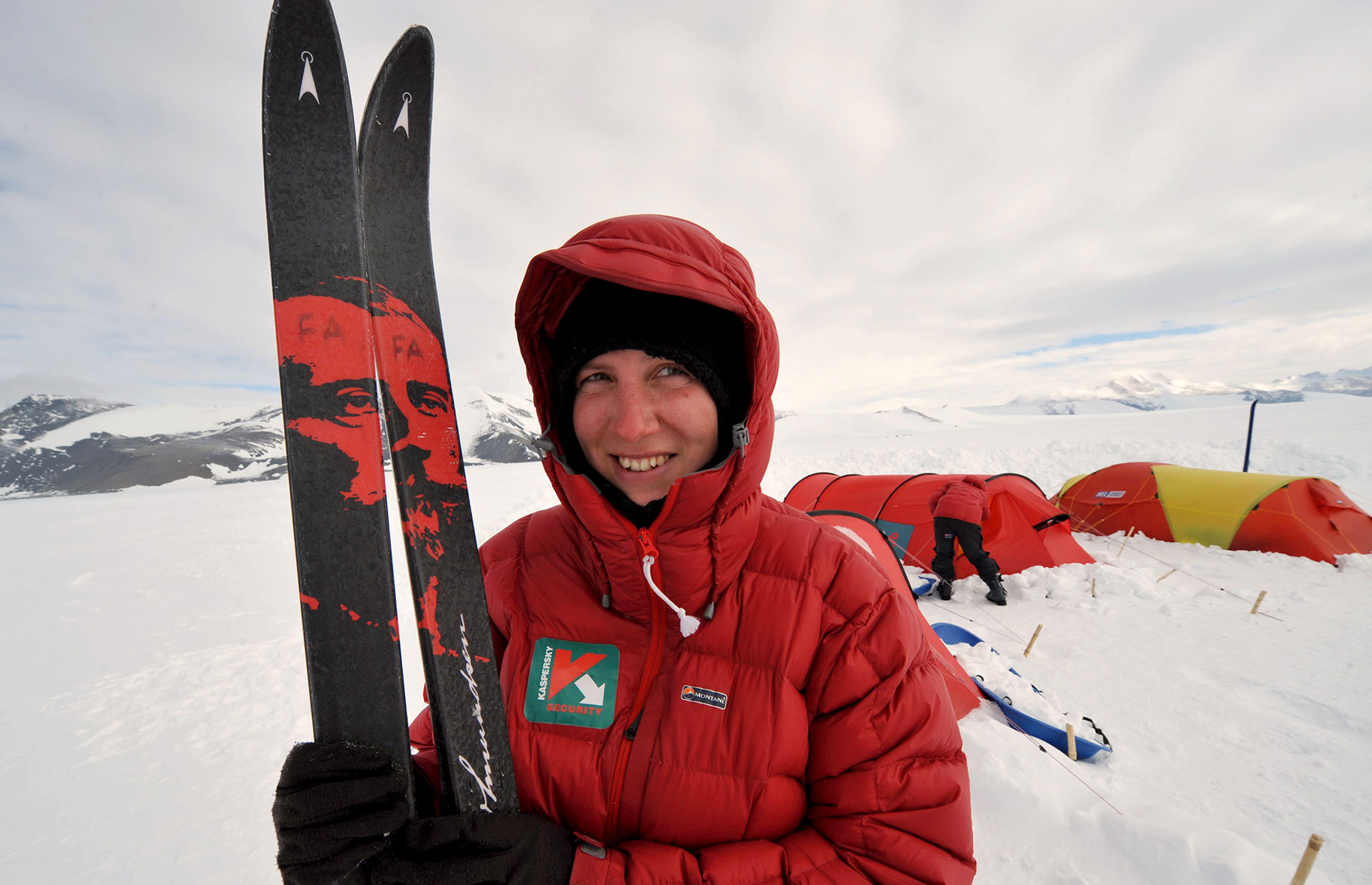 ALEXANDER BLOTNITSKY/AFP via Getty Images
ALEXANDER BLOTNITSKY/AFP via Getty Images
Ten years later I used the same idea to gather a group of women from across the Middle East and Europe to ski together to the North Pole. We successfully reached the top of the world in April 2018.
In between, I’ve been fortunate to take part in so many awesome journeys – I worked on a Russian nuclear icebreaker going back and forth to the North Pole for a summer, drove more than 21,750 miles (35,000km) in a land rover to the coldest inhabited place on Earth in the middle of winter, and even flew in an airship across the southern states of the US for a BBC documentary.
At what point did you have the idea to conquer Antarctica alone?
I’m the sort of person that if I am reading about someone else’s experiences, my mind always wonders whether I would react the same way to the same set of circumstances.
Having read about other solo expeditions in Antarctica I couldn’t help but wonder what it would feel like to be out in a landscape such as Antarctica without the support of a team around me. I found that once the idea of crossing Antarctica alone was in my head, it wouldn’t go away.
I had to do something about it.
READ MORE: Arctic or Antarctica? Discover which is for you with our guide
What was the experience of crossing Antarctica like?
I thought I had prepared really well for the loneliness but in those first few seconds after the plane dropped me off at my start point, I realised just how ill-prepared I was for the shock of that complete isolation.
In many ways I had been preparing for this journey for more than a decade – leading progressively more challenging expeditions that taught me the skills, the experience and most importantly the confidence to be out in the Antarctic environment alone – but nothing could prepare me for being so utterly responsible for my own wellbeing.
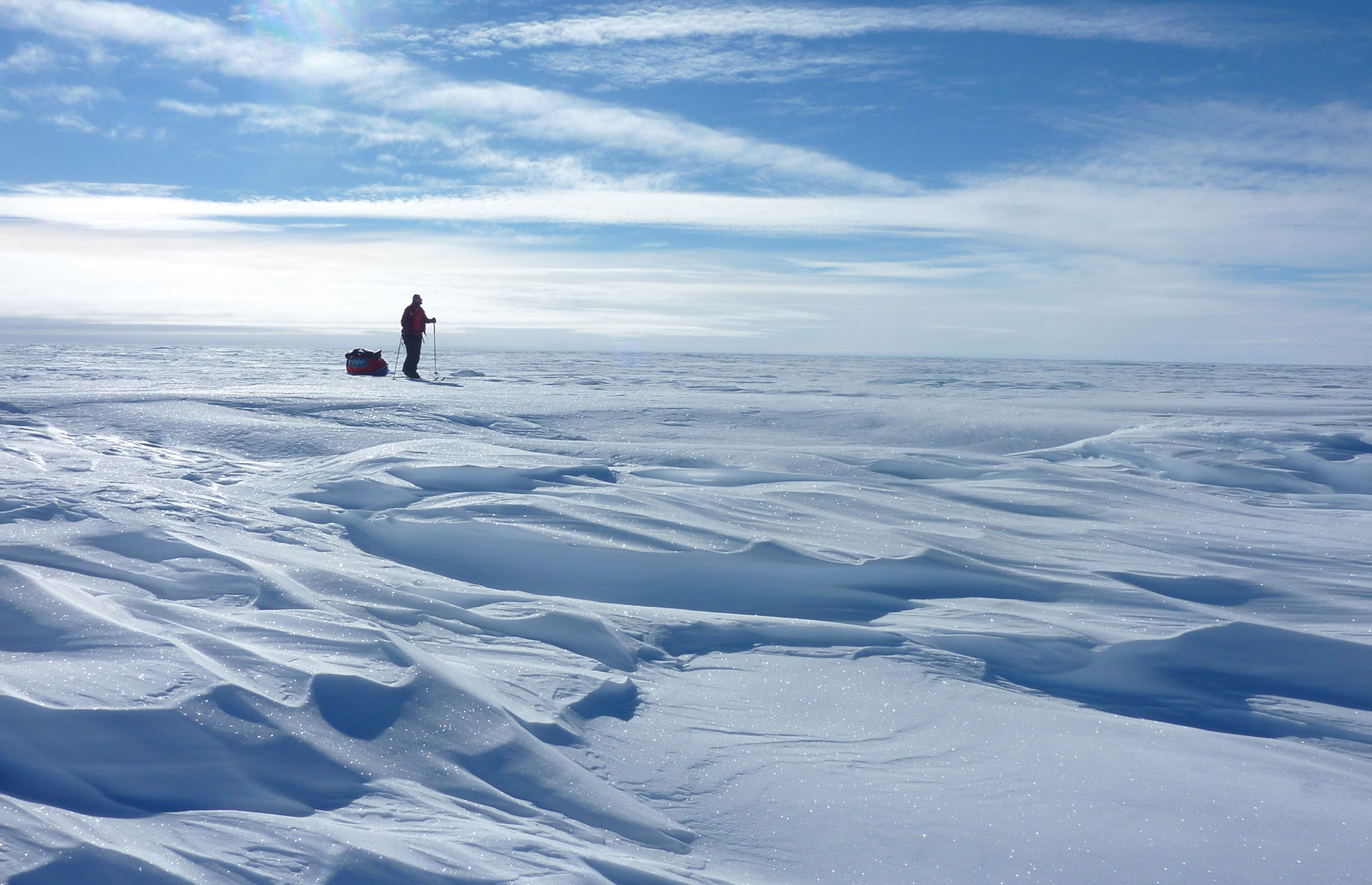 Felicity Aston/CC BY-SA 4.0/via Wikimedia Commons
Felicity Aston/CC BY-SA 4.0/via Wikimedia Commons
I had two plastic sledges with me, connected one behind the other, that contained 85kg of food and equipment, which included a satellite phone.
But calling for help in Antarctica is not as easy as it sounds. There are few planes and crew, the distances are huge so fuel depots need to be arranged and the weather has the final say on whether flights can happen or not. It is a big thing to call out a plane – not to mention expensive! The planes that dropped me off also deposited two black bin liners of food and stove fuel for me on their way back to base – one at the South Pole, and one about 310 miles (500km) further along my route. It was up to me to get to them.
There was no escaping the cold. I had to have my skin – including my face - completely covered to stop it freezing. There were days when I would ski through complete whiteouts in which everything was just a spongy, grey, nothingness. But other days would be full of wonder – the sky full of circular rainbows and colourful optical effects.
READ MORE: NASA astronaut Steve Smith on the ultimate trip
If you can give one bit of advice to others about your experience, what would it be?
Take the time to celebrate every success, no matter how relatively small the success that day might be. Each evening in the tent I would find something to celebrate, something that was a landmark for the day. I learned that the amount of progress I made in a day was not as important as the fact I had managed to make any progress at all that day – that I had found a way to keep going – and that was worth celebrating!
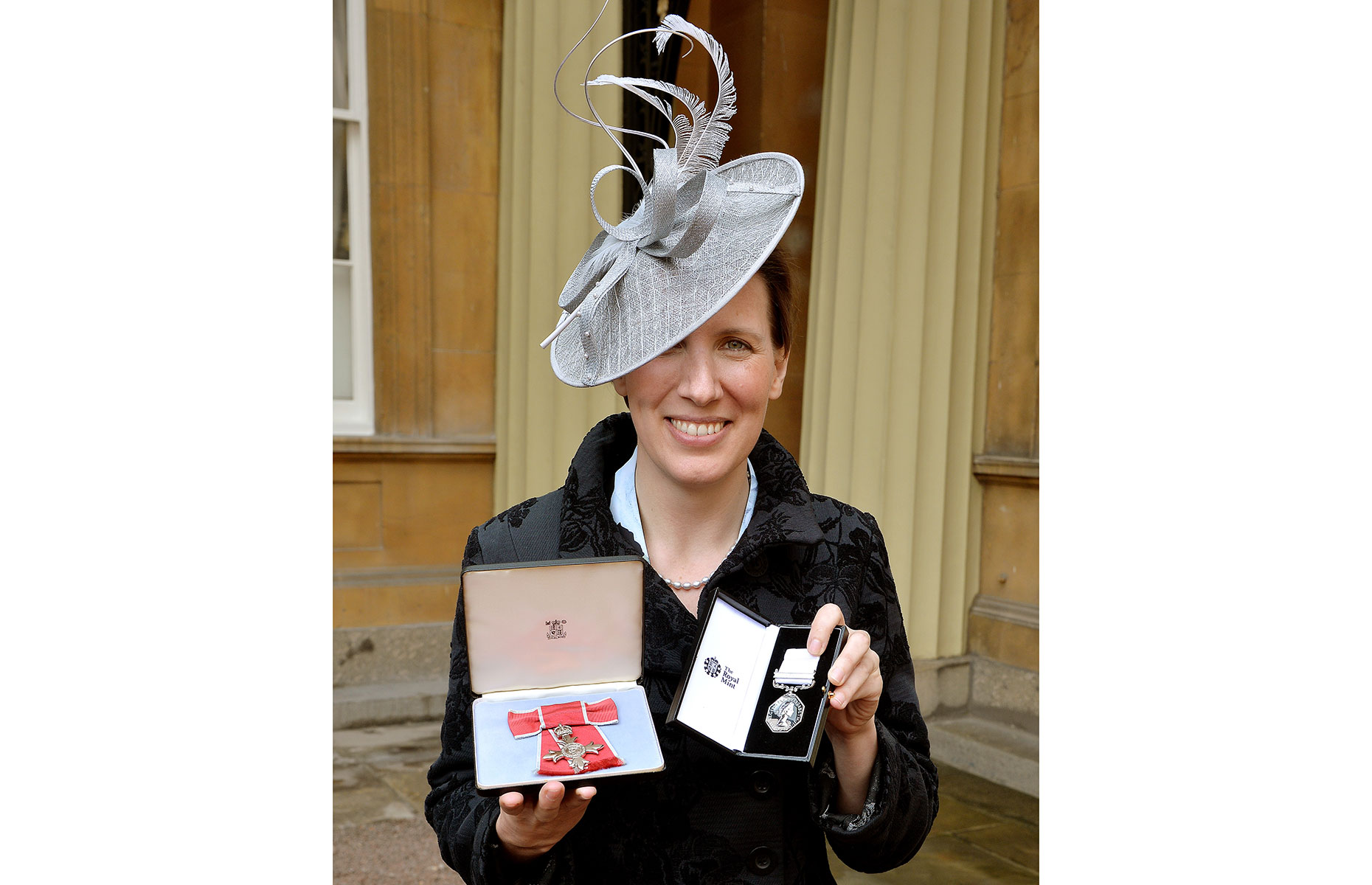 Felicity collecting her MBE in March 2015. Credit: John Stillwell - WPA Pool/Getty Images
Felicity collecting her MBE in March 2015. Credit: John Stillwell - WPA Pool/Getty Images
Are you planning further expeditions in the future?
I’m working on a new North Pole expedition for April 2022.
Find out more about Felicity's work at her website FelicityAston.co.uk
Main image: Courtesy of Felicity Aston
Comments
Be the first to comment
Do you want to comment on this article? You need to be signed in for this feature